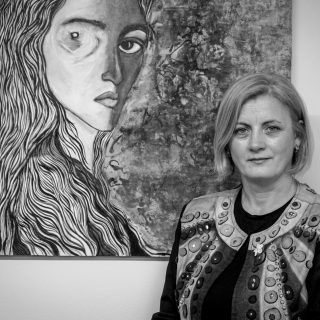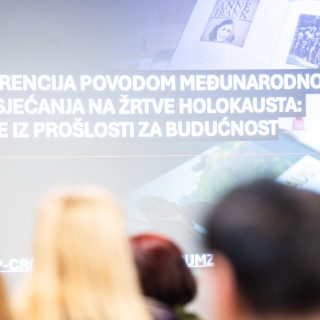Children have the desire to learn in diversity, that is why we should support and strengthen multi-ethnic schools, not only in Macedonia but everywhere, argues Kristina Atovska.
To create a responsible and peaceful multi-ethnic society, education as a socialization factor should be a priority in policy making. In a country like Macedonia, the need for an integrated education, which strengthens mutual understanding, as well as overcoming and accepting differences, is of vital importance. But these conditions are created and multi-ethnic classes are operate in just a few schools in this country. One of them is the primary school Petar Zdravkovski Penko in Skopje, where classes are held in Macedonian, Albanian and Turkish.
Professor Hatice Topali from the Primary School Petar Zdravkovski Penko claims that the effect of joint learning of mutual differences is a better understanding of the present. Additionally, learning together in practice means joint creation of the future, that is, of society as a whole. On the question of how history is studied, that is, whether the contents of textbooks contribute to confronting the past in the direction of understanding differences and accepting them, Topali says that what is studied in textbooks is not enough.
Aside from formal education and what is learned at classes, it is important to pay attention to the relationships that children build outside school. How they behave during breaks or after class says a lot about the benefits of multi-ethnic education. Topali emphasises that in their trilingual school the students had no problems with each other.
"During the breaks, students are constantly together, socializing and discussing their lessons. However, there work remains to be done on relationships after school," Topali says. "The benefits of studying in a multi-ethnic school are socialising in a positive environment at school, getting to know different cultures and traditions. I think this is of great help for understanding the past.”
The pupils do not have a complete, age-appropriate account of what happened in the past. But the system has not been adapted to facilitate proper understanding of history, a great number of professors told me.
The recent past has been particularly difficult for education, as there are discriminatory mistakes in the content and textbooks were withdrawn. However, content reviews are yet to be made. We cannot ignore the fact that our education system has failed in building a tolerant society, which is why priority should be given to education reforms. Social values and norms are learned from the earliest age and that imposes the need for more multi-ethnic schools. A lot of professors, we visited, stressed the necessity of multi-ethnic programmes which should begin to be applied not only in primary education, but also in secondary schools.
What can be observed in the behaviour of students from monolingual schools is the absence of tolerance. Knowledge of languages would further strengthen the friendly relationship between children from the earliest age. Also, a great number of the professors pointed out, children have a desire to learn in and about diversity. In order to satisfy this desire, multi-ethnic schools, which have existed until now in very small numbers, should be implemented in many more educational institutions across the country.
Kristina Atovska is a journalist from Macedonia. She started her career immediately after graduating. She works for TV 24. Apart from political, economic and crisis affairs she reports on the rights of workers through sources within trade unions. She also defends unwaveringly the rights of journalists and freedom of the media, and had been doing so even before she was fired from her first job as a journalist because she wrote a story that severely criticized the former Minister of Internal Affairs.



